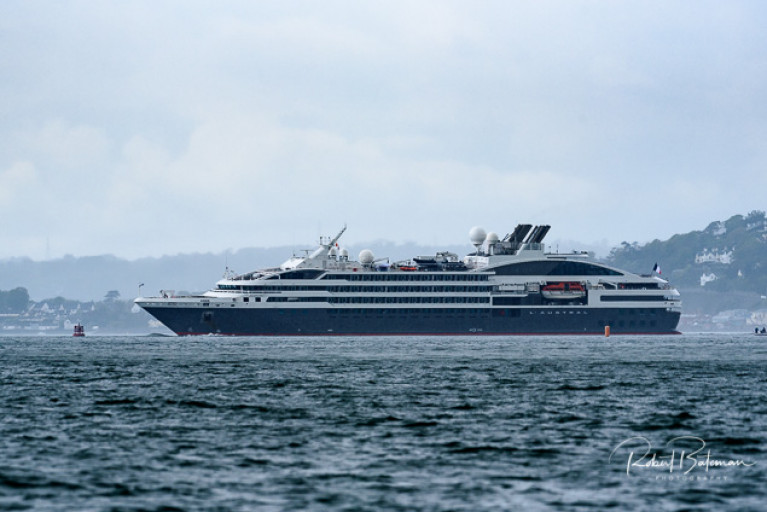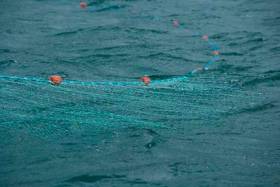Displaying items by tag: Marine Plan
National Marine Plan Framework Submission Deadline Extended
The Government has extended the public submission deadline for the State’s first national marine plan framework until the end of this month due to the Covid-19 pandemic writes Lorna Siggins
Minister of State for Housing and Urban Development Damien English said the time extension was agreed “in recognition” of challenges faced by individuals or organisations in making submissions by the original date of April 9th.
The new deadline has been set for midday on April 30th, 2020.
The marine planning framework is one central piece in a jigsaw designed to meet the EU requirement for national marine spatial plans by 2021.
"The new deadline has been set for midday on April 30th"
It aims to outline the approach to managing Ireland’s marine activities and sustainable use of marine resources to 2040, serving as a parallel to terrestrial planning and development in the national planning framework.
The finalised national marine plan framework is still expected to be adopted in late 2020, the Department for Housing, Planning and Local Government has said.
The draft was published and public consultation was initiated last November. It sets out planning objectives and policies relating to 16 different sectors/activities including offshore renewable energy (and other energy sectors); fisheries; ports, harbours and shipping; safety at sea; sport and recreation; tourism; and telecommunications, it says.
Under associated legislation, maritime area consents will be granted by the Minister for Communications, Climate action and the Environment for developments such as offshore energy projects.
The draft national marine plan framework and associated environmental reports can be found at www.marineplan.gov.ie
People can give their views by email to: [email protected] or by post to: Draft NMPF Submissions, Marine Planning Section, Department of Housing, Planning and Local Government, Newtown Road, Wexford, Y35 AP90
Single System of Marine Consents May Exclude Key Marine Activities
A Government plan to streamline marine planning and consent has been stymied by refusal of one key department to become involved writes Lorna Siggins
A new “one stop permit shop” for offshore wind farms, ocean energy and other marine activities will not now cover fish farming or sea fisheries.
Minister for Agriculture, Food and the Marine Michael Creed intends to retain responsibility for aquaculture and sea-fisheries related development, his department has confirmed.
As a result, these activities may be omitted from the long-awaited Marine Planning and Development Management Bill, which is due to come before the Oireachtas shortly.
The new legislation billed as “revolutionary”, intends to underpin a single maritime area consent system for economic activity off the coast which avoids conflicts between competing interests.
The failure by Mr Creed’s department to sign up was criticised at a consultation meeting on the Government’ s new national marine planning framework in Galway this week.
Minister of State for Housing and Urban Development Damien English, who is spearheading the new framework, told the meeting his department would be hiring planners with a marine background as part of the approach.
However, the Irish Farmers’ Association (IFA) Aquaculture Executive Teresa Morrisey, who represents fish and shellfish farmers, challenged Mr English to explain why Mr Creed’s department had declined to sign up.
She said that the current system of aquaculture licensing had been acknowledged as not fit for purpose.
“How many government departments does it takes to manage the native flat oyster?"
Mr Diarmuid Kelly of Cuan Beo, the Galway Bay environmental organisation, also highlighted the anomalies when he asked Mr English if he knew “how many government departments it takes to manage the native flat oyster”.
“Seven,” Mr English replied, acknowledging there was an issue of duplication.
“The situation with the Department of Agriculture is not finished yet,” Mr English added, referring to the new legislation.
The national marine planning framework has been hailed by Mr English as a “milestone” and “Ireland’s first complete marine spatial plan”.
Under the associated legislation, maritime area consents will be granted by the Minister for Communications, Climate Action and the Environment for developments such as offshore renewable energy.
The Government’s target of 70% renewable energy by 2030 as part of its climate action plan means Ireland “will have to prepare now for a significant offshore wind capacity in our system”, Minister for Climate Action Richard Bruton said recently.
Maritime area consents for all other development will be granted by the Minister for Housing, Planning and Local Government.
A newly designated “nearshore” area will fall under local authorities, which will regulate “minor activities” such as horse racing on beaches.
Just three months have been given for submissions to the marine planning framework, which is one central piece in a jigsaw designed to meet the EU requirement for national marine spatial plans by 2021.
Mr English’s department is hosting a series of regional consultative meetings around the coast before the submission deadline of February 28th, 2020.
Northern Ireland Marine Plan Moves To Next Stage
#NIMarinePlan - The latest update for stakeholders from Northern Ireland's Department of the Environment (DOE) on the draft Marine Plan details the next steps before the formal approval process.
The draft plan is currently with consultants AECOM Ltd for the sustainability appraisal, a requirement before putting forward then plan for public consultation.
It's expected that stakeholders will be engaged on the draft plan before the end of March, with a publicly accessible map viewer displaying "a comprehensive set of spatial data relevant to the Northern Ireland marine area" to be made available in time for the consultation.
In the meantime, the DOE says work has progressed on other impact assessments and screen procedures associated with the plan in terms of rural proofing and habitats regulations, among others.
And the Marine Plan team continues to engage with district councils throughout Northern Ireland on their obligations with respect to marine planning "in making decisions on planning applications and enforcement action and in taking forward community and local development plans".
Progress on the Marine Plan from 2009 to 2015 is detailed in a report published in October and available to read or download at the DOE website HERE.

























































